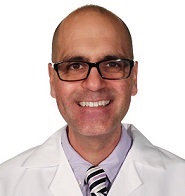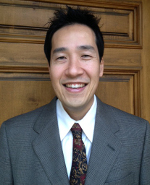The physician shortage is looming on the horizon. Physicians are retiring or selling their practices and not as many students are choosing the medical field. If given the chance, would practicing gastroenterologists choose the same field or take a different path?
Ask a Gastroenterologist is a weekly series of questions posed to GI physicians around the country on business and clinical issues affecting the field of gastroenterology. We invite all gastroenterologists to submit responses. Next week's question: What are some of the best strategies for preventing burnout in the gastroenterology field?
Please submit responses to Carrie Pallardy at cpallardy@beckershealthcare.com by Thursday, August 21, at 5 p.m. CST.
 Maxwell Chait, MD, FACP, FACG, FASGE, AGAF, ColumbiaDoctors Medical Group (Hartsdale, N.Y.): The medical profession in general has had work dissatisfaction associated with major changes over the past several decades due to income reduction, progressive loss of control to insurance companies and the government and increased concerns with the medico-legal environment. It has gone from being viewed as Dr. Marcus Welby to the doctors in Masters of Sex.
Maxwell Chait, MD, FACP, FACG, FASGE, AGAF, ColumbiaDoctors Medical Group (Hartsdale, N.Y.): The medical profession in general has had work dissatisfaction associated with major changes over the past several decades due to income reduction, progressive loss of control to insurance companies and the government and increased concerns with the medico-legal environment. It has gone from being viewed as Dr. Marcus Welby to the doctors in Masters of Sex.
Physicians are now referred to as medical providers and medical waste producers. Working with an EMR is often like looking for Waldo. Concerns over further loss of income are real. However, medicine is still a noble profession. Patients do appreciate what the physician does.
Gastroenterologists in general seem to fair somewhat better than other branches of medicine in satisfaction polls. During my fellowship, endoscopy was in its infancy, there were no H2 blockers or PPI agents, evaluation for tumor markers for GI cancers was only in the early phases, ultrasounds and CT scans were primitive and MRI was essentially nonexistent. Treatment of ulcer disease was with Maalox and treatment of upper GI bleeding was with saline lavage. Illnesses such as hepatitis B and hepatitis C were unknown. The old fiberoptic endoscopes were cumbersome and primitive by standards of today, but we were trained to perform endoscopy and treat patients with gastrointestinal disorders.
The journey is not over. Gastroenterology is a rapidly progressing field with a myriad of diagnostic and treatment tools. As gastroenterologists we are now able endoscopically to control hemorrhage and perform tumor ablation. As gastroenterologists we treat GERD and peptic ulcer disease easily and even cure hepatitis C. Therefore, the answer is yes if given a second chance I would choose gastroenterology.
Douglas Haghighi, MD, Internal Medicine Associates (Anchorage, Alaska): Prior to going in the gastroenterology I was a dentist. I have no regrets. I enjoy the variety that gastroenterology has to offer. On any given day I can see patients with a number of different concerns ranging from gastroesophageal reflux disease to diverticulitis with a little hepatitis sprinkled in. Moreover, there are a number of medical therapies currently available that can positively affect the outcomes.
gastroenterology has to offer. On any given day I can see patients with a number of different concerns ranging from gastroesophageal reflux disease to diverticulitis with a little hepatitis sprinkled in. Moreover, there are a number of medical therapies currently available that can positively affect the outcomes.
Our specialty is also heavily procedural based and that affords gastroenterologists the ability to treat disease in a timely, unique and, for the most part, noninvasive fashion. No other specialty can offer the variety of treating different organs medically and from a procedural standpoint. These variables keep me interested and engaged in practicing gastroenterology on a day-to-day basis.
 Patrick Takahashi, MD, CMIO and Chief of Gastroenterology Section of St. Vincent Medical Center (Los Angeles): I love the field of gastroenterology. The field allows me to combine the best of medicine from a practical, as well as technological, standpoint. It allows me to perform procedures with immediate diagnostic and therapeutic benefit for my patients. Gastroenterology allows me to sit with my patients on a one-on-one level and jointly plan the best care possible.
Patrick Takahashi, MD, CMIO and Chief of Gastroenterology Section of St. Vincent Medical Center (Los Angeles): I love the field of gastroenterology. The field allows me to combine the best of medicine from a practical, as well as technological, standpoint. It allows me to perform procedures with immediate diagnostic and therapeutic benefit for my patients. Gastroenterology allows me to sit with my patients on a one-on-one level and jointly plan the best care possible.
I'm able to use my hands like a microsurgeon. It allows me to delve into the digital aspects of medicine, which keep the field challenging and interesting. It continues to challenge me with new discoveries and treatments for my patients. In short, I couldn't think of another medical field which would fit all of my needs!
More articles on gastroenterology:
Young gastroenterologists: the essential skills to thrive in healthcare today
How will bundled payments affect GI? 3 gastroenterologists chime in
6 gastroenterologists & colorectal surgeons on improving the national colorectal cancer screening rate
Ask a Gastroenterologist is a weekly series of questions posed to GI physicians around the country on business and clinical issues affecting the field of gastroenterology. We invite all gastroenterologists to submit responses. Next week's question: What are some of the best strategies for preventing burnout in the gastroenterology field?
Please submit responses to Carrie Pallardy at cpallardy@beckershealthcare.com by Thursday, August 21, at 5 p.m. CST.
 Maxwell Chait, MD, FACP, FACG, FASGE, AGAF, ColumbiaDoctors Medical Group (Hartsdale, N.Y.): The medical profession in general has had work dissatisfaction associated with major changes over the past several decades due to income reduction, progressive loss of control to insurance companies and the government and increased concerns with the medico-legal environment. It has gone from being viewed as Dr. Marcus Welby to the doctors in Masters of Sex.
Maxwell Chait, MD, FACP, FACG, FASGE, AGAF, ColumbiaDoctors Medical Group (Hartsdale, N.Y.): The medical profession in general has had work dissatisfaction associated with major changes over the past several decades due to income reduction, progressive loss of control to insurance companies and the government and increased concerns with the medico-legal environment. It has gone from being viewed as Dr. Marcus Welby to the doctors in Masters of Sex. Physicians are now referred to as medical providers and medical waste producers. Working with an EMR is often like looking for Waldo. Concerns over further loss of income are real. However, medicine is still a noble profession. Patients do appreciate what the physician does.
Gastroenterologists in general seem to fair somewhat better than other branches of medicine in satisfaction polls. During my fellowship, endoscopy was in its infancy, there were no H2 blockers or PPI agents, evaluation for tumor markers for GI cancers was only in the early phases, ultrasounds and CT scans were primitive and MRI was essentially nonexistent. Treatment of ulcer disease was with Maalox and treatment of upper GI bleeding was with saline lavage. Illnesses such as hepatitis B and hepatitis C were unknown. The old fiberoptic endoscopes were cumbersome and primitive by standards of today, but we were trained to perform endoscopy and treat patients with gastrointestinal disorders.
The journey is not over. Gastroenterology is a rapidly progressing field with a myriad of diagnostic and treatment tools. As gastroenterologists we are now able endoscopically to control hemorrhage and perform tumor ablation. As gastroenterologists we treat GERD and peptic ulcer disease easily and even cure hepatitis C. Therefore, the answer is yes if given a second chance I would choose gastroenterology.
Douglas Haghighi, MD, Internal Medicine Associates (Anchorage, Alaska): Prior to going in the gastroenterology I was a dentist. I have no regrets. I enjoy the variety that
 gastroenterology has to offer. On any given day I can see patients with a number of different concerns ranging from gastroesophageal reflux disease to diverticulitis with a little hepatitis sprinkled in. Moreover, there are a number of medical therapies currently available that can positively affect the outcomes.
gastroenterology has to offer. On any given day I can see patients with a number of different concerns ranging from gastroesophageal reflux disease to diverticulitis with a little hepatitis sprinkled in. Moreover, there are a number of medical therapies currently available that can positively affect the outcomes. Our specialty is also heavily procedural based and that affords gastroenterologists the ability to treat disease in a timely, unique and, for the most part, noninvasive fashion. No other specialty can offer the variety of treating different organs medically and from a procedural standpoint. These variables keep me interested and engaged in practicing gastroenterology on a day-to-day basis.
 Patrick Takahashi, MD, CMIO and Chief of Gastroenterology Section of St. Vincent Medical Center (Los Angeles): I love the field of gastroenterology. The field allows me to combine the best of medicine from a practical, as well as technological, standpoint. It allows me to perform procedures with immediate diagnostic and therapeutic benefit for my patients. Gastroenterology allows me to sit with my patients on a one-on-one level and jointly plan the best care possible.
Patrick Takahashi, MD, CMIO and Chief of Gastroenterology Section of St. Vincent Medical Center (Los Angeles): I love the field of gastroenterology. The field allows me to combine the best of medicine from a practical, as well as technological, standpoint. It allows me to perform procedures with immediate diagnostic and therapeutic benefit for my patients. Gastroenterology allows me to sit with my patients on a one-on-one level and jointly plan the best care possible. I'm able to use my hands like a microsurgeon. It allows me to delve into the digital aspects of medicine, which keep the field challenging and interesting. It continues to challenge me with new discoveries and treatments for my patients. In short, I couldn't think of another medical field which would fit all of my needs!
More articles on gastroenterology:
Young gastroenterologists: the essential skills to thrive in healthcare today
How will bundled payments affect GI? 3 gastroenterologists chime in
6 gastroenterologists & colorectal surgeons on improving the national colorectal cancer screening rate


